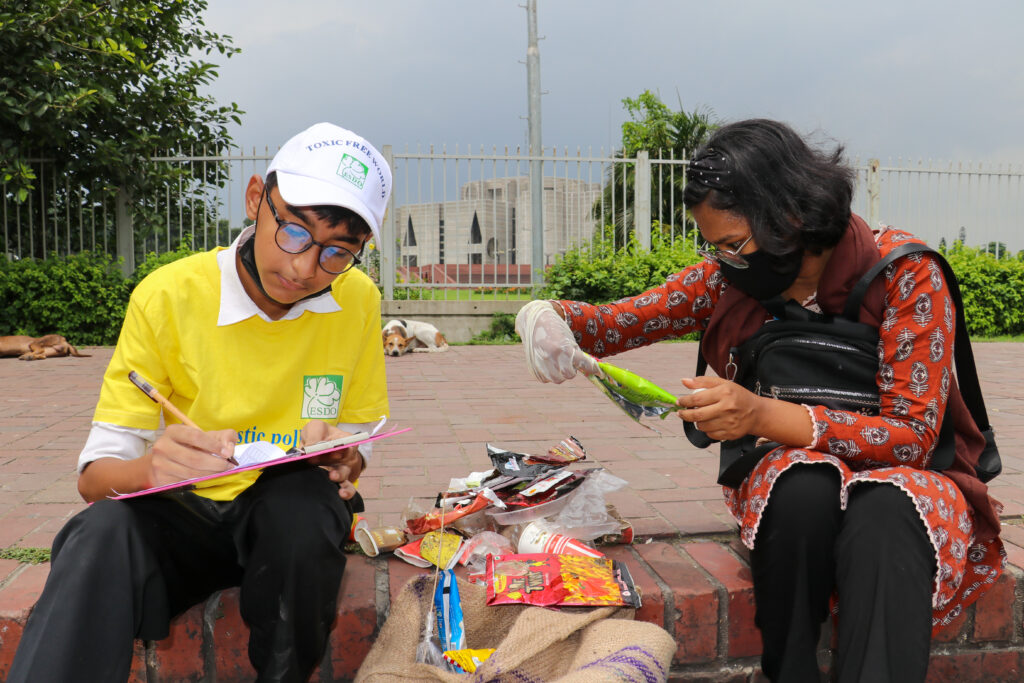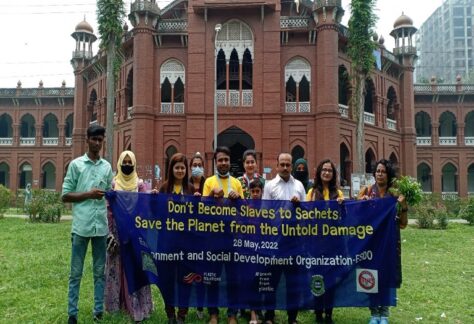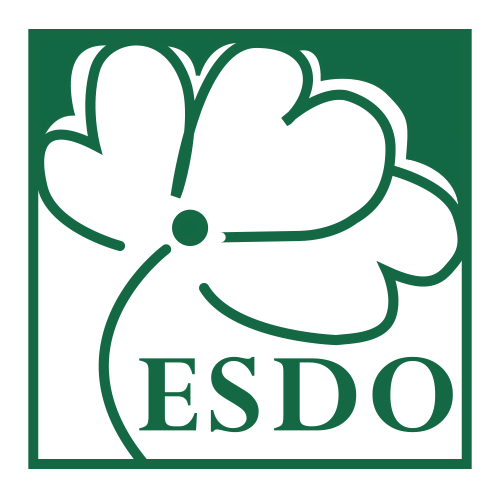Legislation for Combating single-use plastic
Legislation for Combating Single-use Plastic Pollution
GOAL OF PROJECT– To achieve legislation to ban single-use plastic and restriction on other problematic plastic packaging
Summary of the Project
To fulfill the above goal, ESDO will implement a step-by-step strategy that will target all stakeholders. This robust strategy includes a policy audit, in-depth data analysis, alliance, and partnership building, a holistic communications strategy that will create public awareness and policy advocacy, and most importantly we will build case studies that promote alternatives to single-use plastic items. This work will form the foundation and an ecosystem for negotiations with the government and policymakers with whom we hope to continue consulting for drafting enforceable legislation. We will continue to build a movement for optimal enforcement of the legislation after it is passed such that there are real-world changes.
ESDO has been instrumental in bringing forth the ban on plastic bags in Bangladesh in 2002 and more recently we have lobbied for and ensured the introduction of a regulatory order under the draft Bangladesh Standard (BDS) banning the use of microbeads in cosmetics in Bangladesh in 2019. This legally binding circular came into force after sustained advocacy and negotiations with the government, and manufacturers and as a result of a successful media campaign. Our sustained work has ensured that we are looked upon as a credible agency in Bangladesh and our proposals are treated with the seriousness that they deserve. This has resulted in us receiving support from the Department of Environment by way of giving an official note to the DG BSTI (Bangladesh Standards and Testing Institution) and the Ministry of Industry to ban the use of microbeads in Bangladesh. It is this experience and gained momentum and knowledge that is going to drive our work to bring forth legislation to ban single-use plastic.
Our strategies are geared towards ensuring continued long-term outcomes. These include in-depth data analysis, a communication and campaign strategy that will highlight raising consumer demands from manufacturers, a policy audit considering the multiple government departments that will affect the implementation of the ban, strengthening existing networks and building local networks as well as showcasing and highlighting alternatives. A major thrust of our work will be to ensure the proper implementation of the legislation. Our work is far from complete when favorable legislation is passed; in fact, it is the beginning. Successful enforcement of these regulations will require continued watchdogging which we continue to do around the ban on microbeads. We have had continuous market assessment and it was assessed that microbeads containing products are almost out of the market. This is to mention that BSTI has banned microbeads usage in personal care products. These strategies will be bolstered with carefully designed activities that will support the successful implementation of the project.
Short Background
Bangladesh is fast emerging as a global player in the plastic industry by raising its turnover to $2 billion by 2015 and $4 billion by 2020*. The country generates around 86,707 tonnes of single-use plastics annually from different sources, most of which are reported to be improperly managed. The sectors that largely contribute to SUP consumption and usage in Bangladesh include – single-use plastic packaging and products (including food wrappers, sachets, straws, and cutlery), airlines, residential hotels, restaurants, groceries, super shops, etc. Around 96% of the total discarded single-use plastic (82,824 tonnes annually) comes solely from food and personal care packaging (food wrappers and sachets), making it the largest contributor to single-use plastic waste in Bangladesh1.
ESDO has conducted the first-ever empirical study on this issue in Bangladesh. With a growing population, Bangladesh has an expanding market for daily home care and beauty care products – industries that rely heavily on single-use packaging. The country is also a manufacturing hub for multinational companies. Empirical evidence suggests that single-use plastic wastes are generated mainly in urban areas of the country. However, a significant portion also comes from rural usage as sachets of food products and personal care items have grown extremely popular among rural inhabitants in recent days. ESDO Study reveals that of the total generated SUP waste, around 78% (68136 tons) is generated from urban areas, whereas the rest of the 21% (18,571 tons) emerges from usage in rural areas. On the other hand, the rates of collection of waste in urban areas remain low i.e., between 50-70% and it can be assumed that those in the rural areas are even lower. ESDO has also conducted a study from the beginning of the lockdown, about how the COVID-19 Pandemic influenced Single-Use Plastic Waste outbreaks and the report has been published in May 2020. To follow up with this study, ESDO has made another comprehensive research2, particularly on the usage of polythene bags in 16 major cities of Bangladesh, and found that 78433 tonnes and 5997 tonnes of polythene bag waste were generated last year nationwide and in Dhaka city respectively. This means that most SUPS along with the huge number of banned polythene bags will end up polluting the environment.
Although Bangladesh was the first country to ban plastic shopping bags in 2001, there is no legislation in Bangladesh regarding the growing problem of single-use plastic and mini-packaging pollution. The ruling party in Bangladesh has been in power for over 10 years. This government has been partial towards the interests of manufacturers and the corporate sector with limited focus on the environmental impact of the same. Since 1990, ESDO has systematically worked towards sensitizing the government towards the issue of plastic pollution. We have done this by educating mid and higher-level bureaucrats and have worked within electoral constituencies that have committed elected representatives. This relentless work has resulted in the government including a pro-environment agenda in its manifesto. Our job now is to ensure that this agenda is pushed forward resulting in the passing of favorable legislation.
Major Activities
- A desk assessment of the existing situation
- Draft a road map to formulate policy and develop an implementation mechanism
- Receive technical guidance from experts through consultations
- Publish a follow-up study on single-use plastic waste
- Meet and dialogue with other organizations
- Organize learning exchange workshops with CSOs in other countries
- Enable BFFP membership drive, set up exposure meetings, establish CSOs network, and do communications around these activities
- Launch a national and sub-regional campaign on “Ban Single Use Plastic” to involve the CSOs
- Continued online campaigning, aiming to reach more than 3 million people through Facebook, Twitter,
- Instagram, blogs, SMS and YouTube, and social media influencers.
- Have dialogues and meetings with manufacturers to discuss alternatives & exhibition alternatives
- Develop information kits, and network maps (national & sub-regions)
- Conduct a Brand Audit in two major cities to trace which brands are the most polluting and publicizing the findings
- Media Campaign
- Case Studies for alternatives
- Showcasing Plastic Free Campus & Plastic Free Shops
- Continuous engagement and meeting with policymakers and legislators
- Workshop with law enforcement authorities (police) and presentation of the road map and enforcement plan
- Roundtable with media, law practitioners and CSOs
- Submission of a petition to the Prime Minister and online publication of the petition
- Endorsement of the campaign by policymakers
- Social mobilization; Media advocacy and campaign
- Dialogues with lawyers, environmental activists, journalists, and environmental pressure groups for appropriate enforcement of the law


